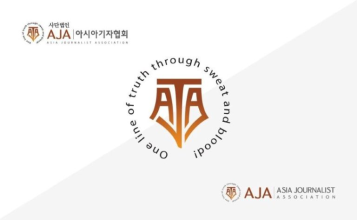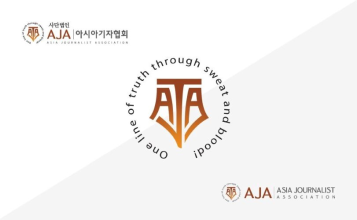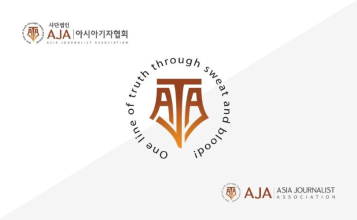AJA Newsbites – June 21, 2025

AJA Newsbites is a curated roundup of major news and developments from across Asia, brought to you by members of Asia Journalist Association (AJA)
Lee Sang-ki, THE AsiaN, Korea
South Korea’s Ministry of Employment and Labor is preparing to draft the “Support Act for Reducing Actual Working Hours” to implement the 4.5-day workweek pledged by President Lee Jae-myung. The initiative aims to reduce the country’s annual working hours to below the OECD average by 2030 and to curb excessive and unnecessary overtime. Key proposals include abolishing the blanket wage system, prohibiting after-hours work-related messaging, and establishing a committee dedicated to reducing working hours. However, business groups have criticized the plan as “out of touch with reality,” urging a broad-based social dialogue to ensure a balanced approach in both the pace and scope of implementation.
Norila Daud, Malaysia World News, Malaysia
The proposal for Malaysia to host the Interpol General Assembly in 2028—part of broader efforts to elevate the nation’s international policing profile—has been submitted to the government via the Home Minister.
Outgoing Inspector-General of Police Razarudin Husain stated that the initiative also aims to position the Royal Malaysia Police on the global stage by transforming the Kuala Lumpur Police College into a regional center for cybercrime and narcotics research in Asia.
Razarudin made these remarks during his speech at the handover of duties ceremony held Friday at the Police Training Centre (Pulapol).
He emphasized that the long-term vision is to raise the Police College to the same level as top-tier law enforcement institutions such as the International Law Enforcement Academy (ILEA) in Bangkok and the Jakarta Centre for Law Enforcement Cooperation (JCLEC) in Semarang, Indonesia.
“As part of our global outreach, we have already hosted high-level international policing programs, including Police Special Dialogue I and II, the Seminar on Cybercrime and Substance Abuse Awareness, and the Asia International Security Summit and Expo (AQISSE) 2025,” he said, as quoted by the New Straits Times.
He added that these initiatives have yielded tangible results, including the signing of memorandums of understanding (MoUs) between the Malaysian Government and international partners such as China and the Australian Federal Police.
According to Razarudin, the MoUs cover cooperation in technology, expertise, and research—particularly in areas such as facial recognition systems and AI-powered CCTV surveillance—to strengthen efforts against transnational crime.
Chhay Sophal, Cambodia News Online, Cambodia
Cambodia’s Deputy Prime Minister and Minister of National Defense, General Tea Seiha, stated on Friday that while Thailand displays its military assets—including missiles, fighter jets, artillery, and warships—both on land and at sea, Cambodia does not possess such advanced weaponry.
“We do not have fighter jets or warships,” the General said, emphasizing that Cambodia’s military capacity is solely focused on national defense. He noted, however, that Cambodia is equipped with anti-aircraft guns, anti-tank weapons, and coastal frontline artillery.
General Tea Seiha made these remarks during a ceremony marking the 48th anniversary of the beginning of the struggle to overthrow the genocidal Pol Pot regime, as well as the 47th anniversary of the founding of the Cambodian National Rescue Unity Armed Forces.
He also highlighted that Cambodia has been cooperating with several friendly nations to enhance its military capabilities. “Our purpose is purely defensive,” he stressed. “We build our military strength only to protect our country—not to promote aggression or threaten others.”
Nasir Aijaz, Sindh Courier, Pakistan
The Government of Pakistan has formally decided to recommend President Donald J. Trump for the 2026 Nobel Peace Prize, in recognition of his decisive diplomatic intervention and pivotal leadership during the recent India-Pakistan crisis.
A press release, reportedly issued by the Government of Pakistan and widely circulated on social media and in electronic media reports, stated: “The international community witnessed unprovoked and unlawful Indian aggression—an egregious violation of Pakistan’s sovereignty and territorial integrity—which resulted in the tragic loss of innocent lives, including women, children, and the elderly. In response, Pakistan exercised its fundamental right to self-defense by launching Operation Bunyanum Marsoos—a calibrated, resolute, and precise military operation aimed at restoring deterrence and defending national sovereignty, while taking utmost care to avoid civilian casualties.”
News of Pakistan’s intention to nominate President Trump for the Nobel Peace Prize went viral following a recent meeting between Pakistan’s Army Chief, Field Marshal Asim Muneer, and former U.S. President Donald J. Trump in Washington.
Shafiqul Bashar, Asia Journalist Association, Bangladesh
Deposits by Bangladeshi nationals in Swiss banks have surged more than 33-fold in a single year, reaching 589.5 million Swiss francs in 2024.
This sharp increase marks a dramatic rebound from 2023, when deposits linked to Bangladeshi clients had plunged to just 17.7 million francs (approximately BDT 2.65 billion)—the lowest level in 28 years—down from 55.2 million francs in 2022.
According to media reports, the Swiss National Bank (SNB)—Switzerland’s central bank—disclosed this in its annual report published on Thursday, June 19. The SNB publishes this report annually, detailing the total deposits held by foreign individuals and institutions in Swiss banks.
Economists and experts believe that the surge in Bangladeshi deposits in 2024 may be linked to the country’s political instability. Political unrest escalated earlier that year, ultimately leading to the fall of the Sheikh Hasina-led Awami League government.
In response, wealthy individuals and institutions in Bangladesh are thought to have moved significant funds to Swiss banks in search of safer, more stable financial havens.
Switzerland’s banking sector—long regarded as a safe haven for international capital due to its strong confidentiality laws—does not disclose details of individual account holders.
ⓒ THE AsiaN | All rights reserved
This content is copyrighted by THE AsiaN. If you wish to share it, please do so without modifying the original text and always include the source link. Unauthorized editing or sharing without proper attribution may result in legal consequences.



